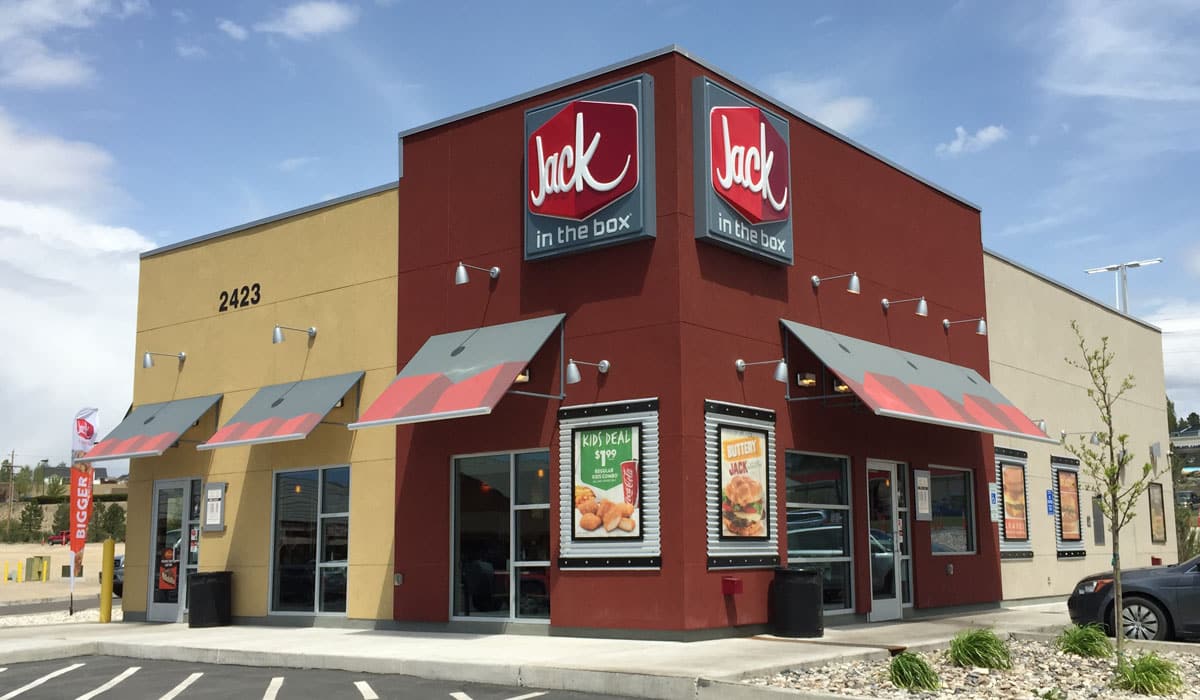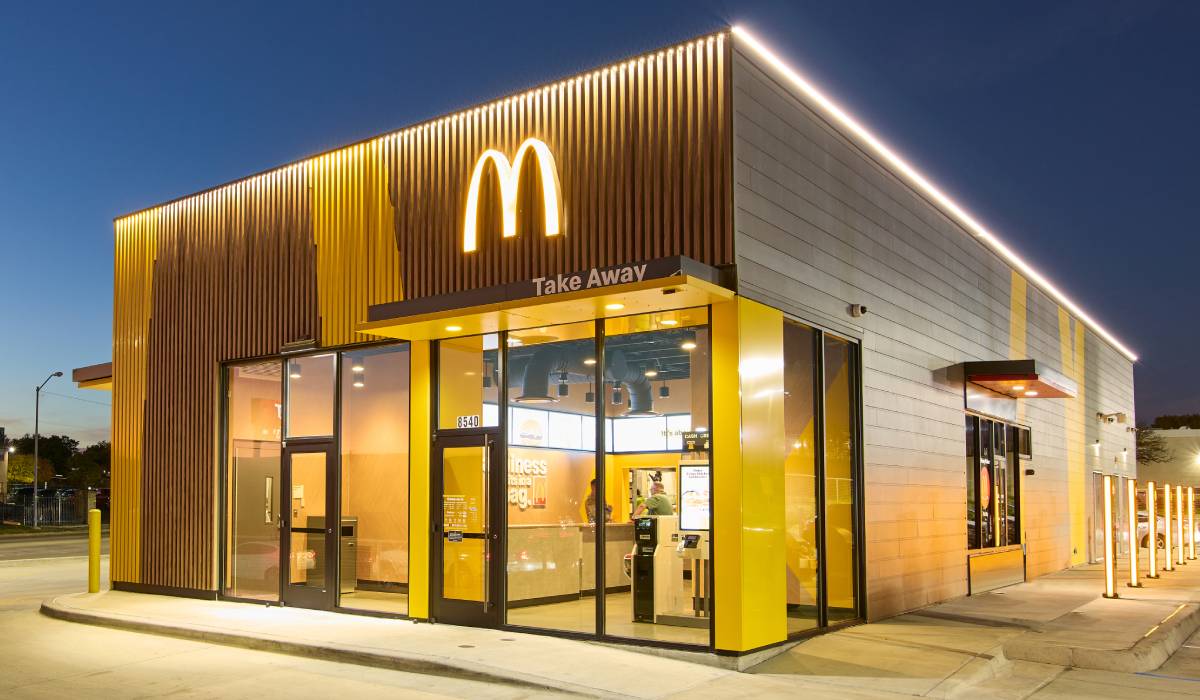Jack in the Box CEO Darrin Harris firmly believes the chain can’t succeed unless franchisees succeed.
He likes to think of the relationship as a race. Historically, JIB has passed the baton to franchisees at the fourth leg and asked them to cross the finish line. But now, the brand is bringing operators with them to the start.
Harris’ actions have backed up his beliefs. Five months into his tenure, JIB reached a settlement with the Jack in the Box Franchisee Association after a multi-year lawsuit. Within that settlement, the Leadership Advisory Council was formed, which met for the first time a few weeks ago.
“We have reenergized the relationship and look forward to seeing this transpire into further growth of the Jack in the Box brand,” Harris said during the brand’s Q1 earnings call.
Reenergized may be an understatement. In Q1, which ended January 17, franchisees saw same-store sales lift 13 percent after rising 12.2 percent in Q4, including a sequential increase in transactions. Franchisees opened three stores in the quarter, which was offset by four locations returning to the company and another seven closing. JIB ended Q1 with 2,237 stores, 2,089 of which are franchisees. JIB plans to open 20 to 25 units this year.
With continued work on a new prototype that’s reduced costs between 18 and 23 percent, Harris said JIB is ironing out a development strategy to “invigorate long-term growth for us and our franchisees.” Three of those prototype sites are already in process.
Harris noted that AUVs of stores debuting in 2019, 2020, and 2021 are opening higher than the system average. Additionally, JIB opened 27 franchises in fiscal 2020 despite the pandemic, the most it’s had in a decade. Profitability increased 20 percent year-over-year.
The brand will begin actively marketing to new operators in the next few months. Two-thirds of existing franchisees have expressed interest in expanding, as well. The CEO explained that JIB and operators are now having real conversations about where and how they would pursue additional markets or development agreements.
“… The way we’re looking at our policies and our procedures around opening up the funnel for growth is different than maybe how we’ve pursued it in the past when we were selling locations,” Harris said. “Our policies are more friendly to inviting in capital. And we’ll spend time going out and energy around engaging with capital providers, whether that’s private equity or family office. So we’re opening up those policies to be more investor-friendly.”
The CEO said JIB has room to build another 950 to 1,200 locations in its existing core markets. As an example, Harris said Denver, which has 13 units, could hold more than 50 restaurants. Stage one is to grow the core areas and slowly move out in concentric circles.
Harris also noted that JIB believes company growth is vital to spurring franchise expansion, so the brand will look at its balance sheet to do that. Same-store sales at corporate units increased 7.5 percent in Q1, driven by average check growth of 21.2 percent, including pricing of 3.1 percent, offset by transaction declines of 13.7 percent.
The gap between company-run and franchise performance was driven by a handful of company locations heavily dependent on broader traffic. In addition, some corporate units have reduced hours because of COVID staffing challenges. Despite this, company AUV exceeded $50,000 per week in Q1.
Although JIB will pursue corporate growth, Harris emphasized JIB will remain asset light.
“We’re extremely excited about the possibility of growth, but we also know—to be realistic—the timeline that we have to continue to build the pipeline,” Harris said.
At the store level, Harris attributed JIB’s sales success to price-pointed value offers satisfying core customers and benefits from innovation like the Cluck Sandwich, which contributed significantly to same-store sales. Tiny Tacos, introduced in early 2020, continued to drive transactions and bolster check sizes as add-ons, as well. JIB also saw increased sales from premium items like the Jumbo Breakfast Platter, Ultimate Bacon Cheeseburger, and Chicken Strips; this section of the menu accounted for more than half of the comps increase.
Average check growth was driven by premium products, as well as a 9 percent increase in the number of items per check, moving from 3.87 a year ago to 4.22 this quarter.
“We’ve been doing a lot of research around who our target segment is, and enhancing the way that we communicate through digital means and through our overall marketing strategy, to be more effective at communicating to these guests,” said Harris, in regard to customers’ attraction to premium products. “That’s enabling them to explore what’s additional on our menu.”
During the pandemic, JIB witnessed a huge shift away from breakfast and late-night, but all dayparts saw positive growth in Q1. Traffic remains negative, but the chain has seen a sizable rebound.
At JIB, consumers may purchase any item no matter the time of day. Carol DiRamo, chief investor relations and corporate communications officer, said that policy has helped JIB as other brands have cut back or moved away from all-day breakfast, like McDonald’s.
“If I want tacos at 9 a.m. or a Breakfast Platter at 3 p.m., we give consumers that option,” DiRamo said. “That’s a distinct competitive advantage for the Jack in the Box brand.”
Digital more than doubled year-over-year to 7 percent of system sales. More than 95 percent of restaurants are covered by at least one of the four major third-party delivery companies. Eighty percent utilize at least three. Harris said that JIB is scheduled to roll out a loyalty program in Q2, and that the chain is building a robust database to communicate more frequently with consumers on a 1:1 basis.
As off-premises orders rose, JIB saw operational initiatives begin to take hold. This includes new holding cabinets, cooking procedures for chicken, and an enhanced training platform.
“We rolled them out late last year and we’ve seen an improvement in consistency across stores and speed of service, but we’ve also seen an increase in improved behaviors that lead to speed improvements,” Harris said.
As the brand moves forward, Harris is rounding out the executive team. Timothy Mullany started as CFO in January and Ryan Ostrom became CMO in February. The team is still searching for a COO.
Net earnings were $50.9 million, or $2.21 per diluted share, for Q1, compared with $7.9 million, or $0.33 per diluted share, last year. Adjusted EBITDA was $102.4 million, an improvement from $76.6 million in the prior year. Revenue in the quarter grew from $307.67 million to $338.54 million.









